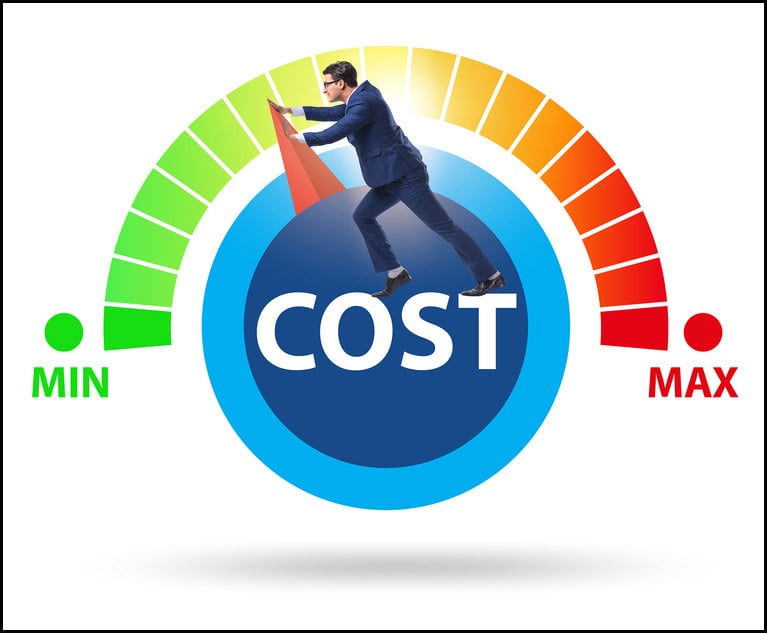 (L-R)Katayun Jaffari and Diane Thompson of Cozen O'Connor. Courtesy photos
(L-R)Katayun Jaffari and Diane Thompson of Cozen O'Connor. Courtesy photos Executive Compensation Considerations in SPAC Transactions
Given the uncertainty of future SPAC regulations, the compensation considerations identified in this article are subject to change as well. SPAC sponsors and target companies alike should closely monitor both developments in the market and statements from regulators with these considerations in mind.
September 15, 2021 at 03:27 PM
8 minute read
While special purpose acquisition companies (SPACs) have existed as an alternative to the traditional initial public offering (IPO) since the 1990s, SPAC deal activity has increased dramatically over the last 18 months. Also known as "blank check companies," SPACs are publicly traded entities that raise capital through an IPO. Once formed, a SPAC has a limited timeframe—typically two years—in which to merge with or acquire a privately held operating company, thereby taking it public; this process is referred to the "de-SPAC" transaction. The limited time in which a SPAC must complete the de-SPAC transaction, as well as recent changes to the tax code impacting newly public companies and the general scrutiny that attends the private-to-public transformation through a SPAC, creates unique considerations for executive compensation. This article briefly outlines these considerations and provides an update in light of the recent frenzy of SPAC activity and increased regulatory attention. Given the uncertainty of future SPAC regulations, the compensation considerations identified in this article are subject to change as well. SPAC sponsors and target companies alike should closely monitor both developments in the market and statements from regulators with these considerations in mind.
Pay Design
A SPAC must generally find and acquire a target company within 24 months of formation to avoid liquidation. This short horizon impacts considerations for executive pay design in several ways. Most obviously, it limits the time period during which compensation planning can take place. In the context of a traditional IPO, compensation programs are typically developed and implemented two to three years ahead of time. In contrast, SPAC merger targets are often going public earlier than anticipated and so might lack a built-out compensation and governance infrastructure. Further complicating matters, the tight 24-month timeline may give negotiating leverage to the target company's management when it comes to compensation.
This content has been archived. It is available through our partners, LexisNexis® and Bloomberg Law.
To view this content, please continue to their sites.
Not a Lexis Subscriber?
Subscribe Now
Not a Bloomberg Law Subscriber?
Subscribe Now
NOT FOR REPRINT
© 2025 ALM Global, LLC, All Rights Reserved. Request academic re-use from www.copyright.com. All other uses, submit a request to [email protected]. For more information visit Asset & Logo Licensing.
You Might Like
View All
Legal Departments Dinged for Acquiescing to Rate Hikes That 'Defy Gravity'
4 minute read
Best Practices for Adopting and Adapting to AI: Mitigating Risk in Light of Increasing Regulatory and Shareholder Scrutiny
7 minute read
Three Reasons CLOs Are Critical to the Successful Adoption of Generative AI

Election Outcome Could Spur Policy U-Turns Across Employment Landscape
6 minute readLaw Firms Mentioned
Trending Stories
Who Got The Work
J. Brugh Lower of Gibbons has entered an appearance for industrial equipment supplier Devco Corporation in a pending trademark infringement lawsuit. The suit, accusing the defendant of selling knock-off Graco products, was filed Dec. 18 in New Jersey District Court by Rivkin Radler on behalf of Graco Inc. and Graco Minnesota. The case, assigned to U.S. District Judge Zahid N. Quraishi, is 3:24-cv-11294, Graco Inc. et al v. Devco Corporation.
Who Got The Work
Rebecca Maller-Stein and Kent A. Yalowitz of Arnold & Porter Kaye Scholer have entered their appearances for Hanaco Venture Capital and its executives, Lior Prosor and David Frankel, in a pending securities lawsuit. The action, filed on Dec. 24 in New York Southern District Court by Zell, Aron & Co. on behalf of Goldeneye Advisors, accuses the defendants of negligently and fraudulently managing the plaintiff's $1 million investment. The case, assigned to U.S. District Judge Vernon S. Broderick, is 1:24-cv-09918, Goldeneye Advisors, LLC v. Hanaco Venture Capital, Ltd. et al.
Who Got The Work
Attorneys from A&O Shearman has stepped in as defense counsel for Toronto-Dominion Bank and other defendants in a pending securities class action. The suit, filed Dec. 11 in New York Southern District Court by Bleichmar Fonti & Auld, accuses the defendants of concealing the bank's 'pervasive' deficiencies in regards to its compliance with the Bank Secrecy Act and the quality of its anti-money laundering controls. The case, assigned to U.S. District Judge Arun Subramanian, is 1:24-cv-09445, Gonzalez v. The Toronto-Dominion Bank et al.
Who Got The Work
Crown Castle International, a Pennsylvania company providing shared communications infrastructure, has turned to Luke D. Wolf of Gordon Rees Scully Mansukhani to fend off a pending breach-of-contract lawsuit. The court action, filed Nov. 25 in Michigan Eastern District Court by Hooper Hathaway PC on behalf of The Town Residences LLC, accuses Crown Castle of failing to transfer approximately $30,000 in utility payments from T-Mobile in breach of a roof-top lease and assignment agreement. The case, assigned to U.S. District Judge Susan K. Declercq, is 2:24-cv-13131, The Town Residences LLC v. T-Mobile US, Inc. et al.
Who Got The Work
Wilfred P. Coronato and Daniel M. Schwartz of McCarter & English have stepped in as defense counsel to Electrolux Home Products Inc. in a pending product liability lawsuit. The court action, filed Nov. 26 in New York Eastern District Court by Poulos Lopiccolo PC and Nagel Rice LLP on behalf of David Stern, alleges that the defendant's refrigerators’ drawers and shelving repeatedly break and fall apart within months after purchase. The case, assigned to U.S. District Judge Joan M. Azrack, is 2:24-cv-08204, Stern v. Electrolux Home Products, Inc.
Featured Firms
Law Offices of Gary Martin Hays & Associates, P.C.
(470) 294-1674
Law Offices of Mark E. Salomone
(857) 444-6468
Smith & Hassler
(713) 739-1250





